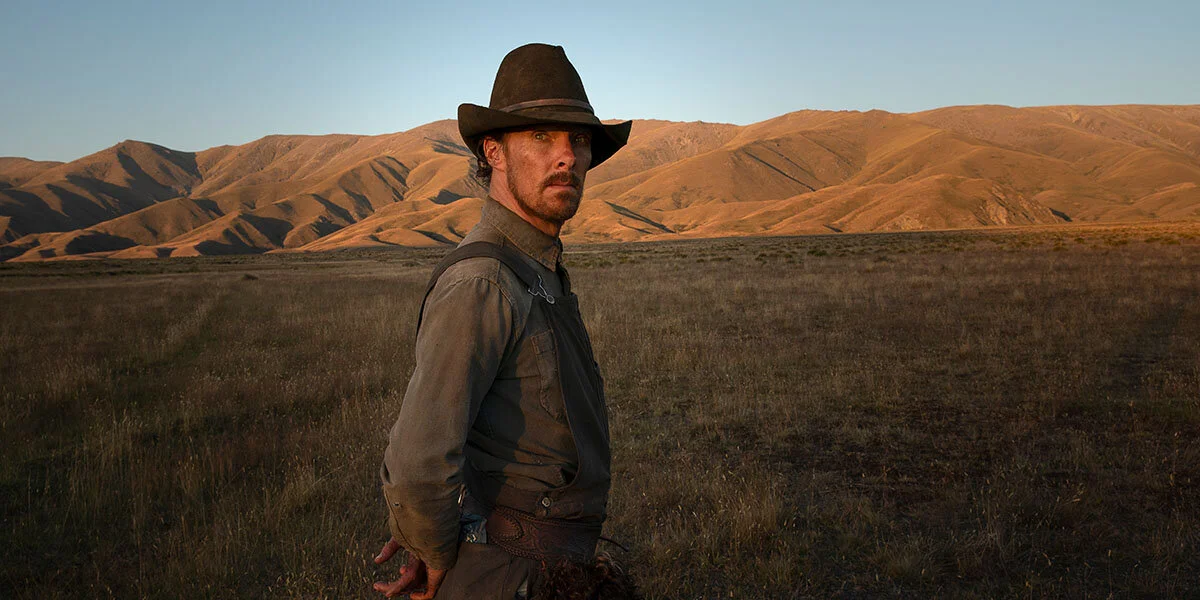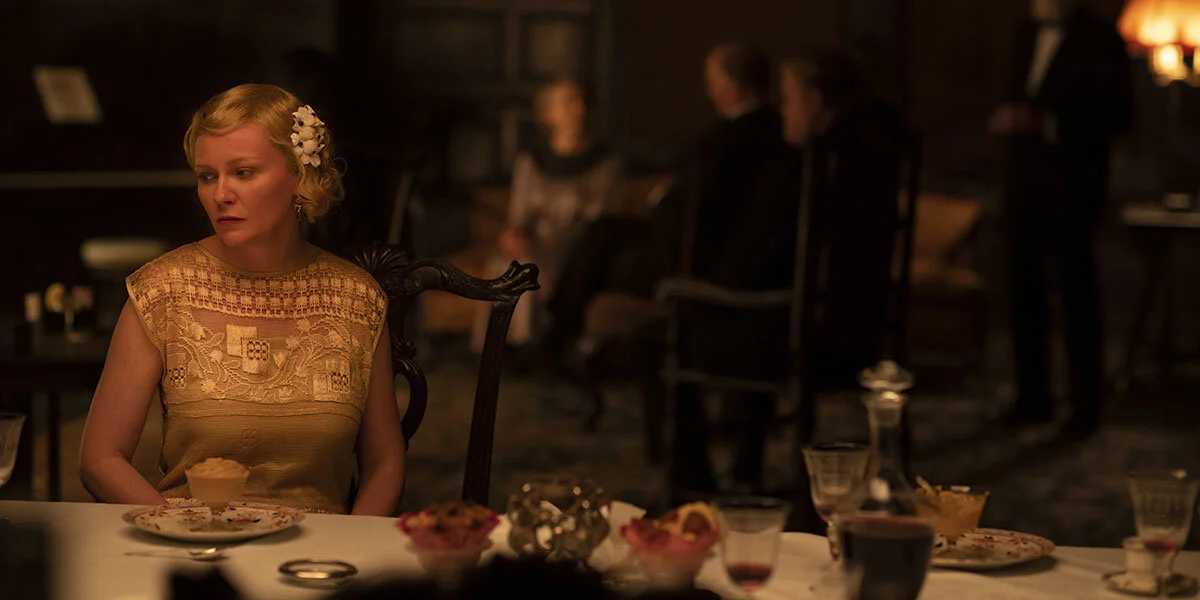Review by Zach Dennis
Any Western is going to be tied to American mythology and the myth of exceptionalism.
Some affirm it, others contradict it and sometimes director John Ford did both. In her latest, The Power of the Dog, director Jane Campion is definitely in the mode of contradiction but also investigates how that myth can infect the person like a sickness.
The film, based on the novel by Thomas Savage, follows two brothers Phil (Benedict Cumberbatch) and George (Jesse Plemons), who are well-off ranchers at the turn of the 20th century. Phil lives through mythology, carrying himself with the bravado of John Wayne and regaling the rest of their team with stories of the legendary rancher that trained him.
Benedict Cumberbatch in ‘The Power of the Dog’
George is less enthused with the lifestyle, electing to instead settle down with a single mother, Rose (Kirsten Dunst), who he meets along their journeys. The two settle into the brothers’ family ranch and Rose and her son Peter (Kodi Smith-McPhee) are immediately made to feel unwelcome by Phil, who sees them as grifters after his brother and their money.
As time passes, Rose’s demeanor worsens and she devolves into heavy drinking to medicate her isolation from her husband, her son and the constant harassment from Phil. At the same time, Peter begins to strike up a friendship with Phil and the rancher takes him under his wing. Unbeknownst to anyone else, the impetus for their friendship comes from Peter learning a bit more about the secret lifestyle of Phil, who had a previous relationship with the rancher who trained him and has hidden away pictures of other men and his queerness in the wilderness near their house.
Phil exemplifies this tether to the American myth as well as the masculine myth commonly expressed through the Western genre. Once we learn this detail of his past, this facade he has created for himself becomes sad, as much of the early parts of the film feature him leaving the revelry of his cowpoke helpers to isolate himself with a guitar in his room.
He rejects his brother’s new life with Rose because he doesn’t know how to handle someone living their life truly. Even before George marries Rose, Phil finds ways to belittle his brother through derogatory nicknames related to his weight and cutting down his ability to handle the ranch jobs as well as Phil can.
Kirsten Dunst in ‘The Power of the Dog’
With Peter, Phil clearly sees something of himself, or at least a version of himself prior to his creation of this mythic facade around him and his aide towards the boy seems to be trying to help him follow the path that he took in order to survive this wilderness that is the 1920s west in the United States.
Cumberbatch might be in his best film role to date here, understanding the subtleties of Phil and staying true to what he is wrestling inside even before we learn what his past was. He’s able to play the rancher with this empathy that displays a sense of sadness on a life wasted on hiding and pretending, especially for someone who will never know what life could have been like to live freely as he wishes.
The Power of the Dog is a slow burn, but a worthwhile one. Campion is smart to hold the punches until the end and delivers a critique of both the American west myth along with masculinity that feels apt and well-structured.


